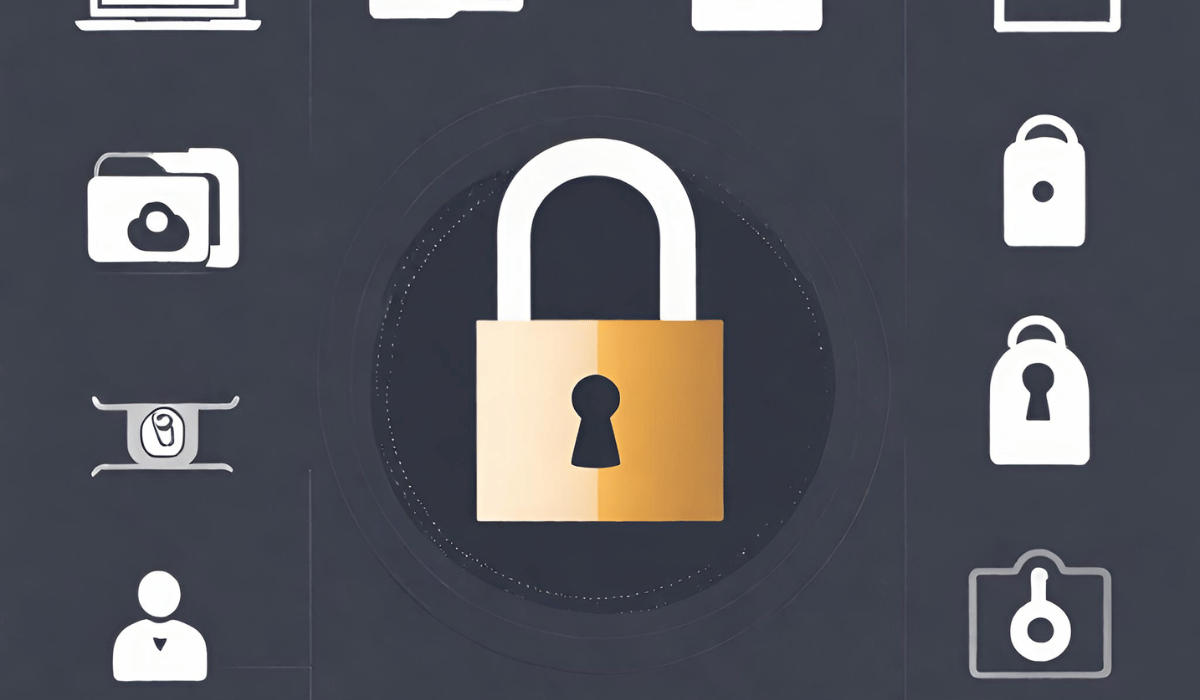Introduction
Data security is a crucial aspect of our digital lives. With the increasing amount of personal and sensitive information being shared online, it’s important to understand the consequences of not securing your data. If your data is not secure, it can fall into the wrong hands and be used for malicious purposes. In this article, we’ll explore what can happen to your data if it’s not secure.
The Risks Of Inadequate Data Security

Data security is the practice of protecting digital information from unauthorized access, theft, corruption, or destruction. It involves implementing various measures and technologies to safeguard sensitive data, such as personal information, financial data, trade secrets, and intellectual property. Some common data security measures include encryption, firewalls, antivirus software, access controls, and regular backups. Data security is crucial for individuals, businesses, and organizations to ensure the confidentiality, integrity, and availability of their data. Failure to implement proper data security measures can result in serious consequences, such as financial losses, legal liabilities, reputational damage, and loss of customer trust.
Industries Most Affected By Data Breaches

Data breaches can affect any industry that handles sensitive information, but some industries are more susceptible than others. The healthcare industry is particularly vulnerable due to the large amount of personal and medical information they handle. Financial institutions are also a prime target for hackers due to the valuable financial data they possess. Retail and hospitality industries are also at risk due to the high volume of customer data they collect and store. Additionally, government and educational institutions are often targeted due to the sensitive nature of the information they hold. All industries need to prioritize data security and implement proper measures to protect their sensitive information.
The Cost Of Data Breaches
Data breaches can be extremely costly for businesses and organizations. The cost includes not only financial losses but also damage to reputation and customer trust. According to a 2019 report by IBM Security, the average cost of a data breach was $3.92 million. This cost includes expenses such as investigation, notification, and remediation. In addition, businesses may also face legal fees and fines for failing to protect customer data. Businesses need to invest in strong cybersecurity measures to prevent data breaches and protect their customers’ sensitive information.
Legal Consequences Of Data Breaches
Data breaches can have serious legal consequences for businesses. Depending on the type and severity of the breach, businesses may face lawsuits from affected customers or regulators. In some cases, businesses may also face fines and penalties for failing to comply with data protection regulations. For example, in the European Union, the General Data Protection Regulation (GDPR) imposes strict requirements on businesses that collect and process personal data. Under the GDPR, businesses that fail to adequately protect customer data can face fines of up to €20 million or 4% of their global annual revenue, whichever is higher.
In the United States, several states have passed data breach notification laws that require businesses to notify affected customers and regulators in the event of a breach. Failure to comply with these laws can result in fines and legal action.
Steps To Prevent Data Breaches
Here are some steps that businesses can take to prevent data breaches:
- Implement strong cybersecurity measures: This includes using firewalls, anti-virus software, and encryption to protect sensitive data.
- Train employees on data protection best practices: Educate employees on the importance of data security, how to identify phishing emails, and how to create strong passwords.
- Regularly review and update security protocols: Conduct regular security audits to identify vulnerabilities and update security protocols accordingly.
- Limit access to sensitive data: Only grant access to sensitive data to employees who need it to perform their job duties.
- Use multi-factor authentication: Require employees to use multi-factor authentication when accessing sensitive data.
- Monitor network activity: Regularly monitor network activity to identify any suspicious activity that could indicate a data breach.
Is Data Breach A Privacy Issue?
Yes, a data breach is a privacy issue. A data breach occurs when sensitive or confidential information is accessed, disclosed, or stolen by an unauthorized individual or group. This can include personal information such as names, addresses, social security numbers, credit card numbers, and other sensitive data. When a data breach occurs, it can compromise the privacy of individuals whose information has been exposed and can result in financial loss, identity theft, and other negative consequences.
The Future Of Data Security

As technology continues to advance, the future of data security is likely to involve even more sophisticated measures to protect sensitive information. One promising area of development is the use of blockchain technology, which can provide a secure and decentralized way to store and share data. Artificial intelligence and machine learning will also play an increasingly important role in data security, as these technologies can help to identify and respond to security threats in real time. Additionally, quantum computing is expected to revolutionize encryption, making it even more difficult for hackers to gain access to sensitive data.
How To Respond To A Data Breach
In the event of a data breach, it is important to act quickly and effectively to minimize the damage and protect sensitive information. Here are some steps to take:
- Identify the source and scope of the breach: Determine what data has been compromised and how the breach occurred.
- Contain the breach: Isolate affected systems and devices to prevent further damage or data loss.
- Notify appropriate parties: Notify law enforcement, affected customers, and other stakeholders as necessary.
- Investigate the breach: Conduct a thorough investigation to determine the extent of the breach and identify any vulnerabilities that need to be addressed.
- Implement remediation measures: Take steps to address the vulnerabilities that led to the breach and prevent similar incidents from occurring in the future.
- Monitor for further activity: Keep a close eye on affected systems and devices to ensure that the breach has been fully contained and there is no further unauthorized activity.
Case Studies: Famous Data Breaches
Some examples of famous data breaches that have occurred in recent years are as follows:
- Equifax: In 2017, Equifax, a credit reporting agency, suffered a massive data breach that exposed the personal information of approximately 147 million people. The breach was caused by a vulnerability in the company’s web application software.
- Yahoo: In 2013 and 2014, Yahoo experienced two separate data breaches that affected all of its 3 billion user accounts. The breaches involved stolen user data such as names, email addresses, dates of birth, and passwords.
- Target: In 2013, Target suffered a data breach that compromised the credit and debit card information of approximately 40 million customers. The breach was caused by a vulnerability in the company’s payment system.
- Marriott International: In 2018, Marriott International announced a data breach that compromised the personal information of approximately 500 million guests. The breach was caused by a vulnerability in the company’s guest reservation database.
These are just a few examples of the many data breaches that have occurred in recent years. It’s important for organizations to take proactive steps to prevent data breaches and have a plan in place to respond quickly.
Privacy Concerns And Social Media
In recent years, privacy concerns related to social media have become increasingly prevalent. Social media platforms like Facebook, Twitter, and Instagram collect vast amounts of personal data from their users, including their likes, dislikes, and online behavior. This data can be used to target users with personalized advertisements and content, but it can also be accessed by third parties without users’ knowledge or consent. One of the most high-profile cases of social media privacy breaches occurred in 2018 when it was revealed that Cambridge Analytica had harvested data from millions of Facebook users without their permission. This data was then used to create targeted political advertisements during the 2016 US presidential election.
To address these concerns, social media companies have implemented new privacy policies and data protection measures. However, users should also take steps to protect their privacy online, such as adjusting their privacy settings and being cautious about sharing personal information.
Ethical Considerations In Data Security
Data security is a crucial ethical consideration in today’s digital age. Companies have a responsibility to protect the personal information of their users and customers. This includes implementing strong security measures, regularly updating their systems, and being transparent about any data breaches or security incidents. Additionally, companies should be mindful of how they collect and use user data. They should obtain consent before collecting any personal information and only use it for legitimate purposes. They should also be transparent about how they use data and provide users with the ability to control their data.
Finally, companies should be held accountable for any misuse or mishandling of user data. This includes facing consequences for any breaches or violations of privacy laws. Users should also have the ability to hold companies accountable and seek legal action if necessary.
Challenges Facing Data Security
There are several challenges facing data security today. One of the biggest challenges is the increasing sophistication of cyber attacks. Hackers are becoming more skilled at exploiting vulnerabilities in systems and networks, and are using advanced techniques such as social engineering to gain access to sensitive data. Another challenge is the sheer volume of data being generated and stored. With the growth of the Internet of Things (IoT) and other technologies, there is an explosion of data being collected from a wide range of sources. This makes it more difficult to manage and secure all of this information.
Additionally, there is a lack of awareness and education about data security. Many individuals and organizations do not understand the risks and best practices for protecting sensitive information. This can lead to careless behavior such as using weak passwords or failing to update software.
Finally, there is a lack of consistent regulation around data security and privacy. Laws and regulations vary widely by country and industry, making it difficult to ensure that all organizations are following best practices and protecting user data.
The Importance Of Data Security In A Post-Pandemic World
Data security has become more important than ever in a post-pandemic world. With more people working remotely and relying on digital tools, the risk of cyber-attacks and data breaches has increased significantly. Organizations must take proactive measures to protect sensitive information and prevent unauthorized access. In addition to the financial and reputational damage that can result from a data breach, there are also legal implications. Organizations that fail to protect user data may face lawsuits and regulatory fines. Organizations need to prioritize data security and implement best practices to prevent these consequences.
Furthermore, data security is not just a responsibility of organizations, but also of individuals. Employees must be trained on best practices for data security and be vigilant in protecting sensitive information. This includes using strong passwords, avoiding public Wi-Fi networks, and being cautious when opening emails or clicking on links.
Data security is crucial in a post-pandemic world. Organizations need to prioritize data security and implement best practices to protect sensitive information. Individuals must also do their part in maintaining data security by being vigilant and following best practices.
Conclusion
Inadequate security measures can have serious consequences, such as identity theft, financial loss, and damage to your reputation. Hackers and cybercriminals can gain access to your personal and financial information, including bank account and credit card details, social security numbers, and other sensitive data. They can use this information to steal your identity, make unauthorized purchases, and even apply for loans or credit in your name.
The consequences of a security breach can be long-lasting and difficult to recover from. It is important to take steps to protect your personal and financial information online. Some tips to help keep your information secure include using strong and unique passwords for each account, enabling two-factor authentication where available, avoiding public Wi-Fi networks for sensitive transactions, regularly monitoring your accounts for suspicious activity, and keeping your software and devices up-to-date with the latest security patches. Additionally, be cautious of phishing scams and suspicious emails or messages that ask for personal information or prompt you to click on a link or download an attachment.
Frequently Asked Questions (FAQs)
What Is Data Security?
Data security refers to the protection of digital information from unauthorized access, theft, or damage. It involves implementing measures to ensure the confidentiality, integrity, and availability of data. This includes using encryption, access controls, firewalls, and other security technologies to prevent data breaches and cyber-attacks.
What Are The Consequences Of A Data Breach?
The consequences of a data breach can be severe and far-reaching. It can result in financial losses, damage to an organization’s reputation, and legal penalties. The stolen data can be used for identity theft, fraud, or other criminal activities. It can also lead to a loss of trust from customers, partners, and stakeholders, which can have long-term impacts on the business.
How Can I Protect My Data?
There are several steps you can take to protect your data:
- Use strong passwords and two-factor authentication to secure your accounts.
- Keep your software and operating systems up to date with the latest security patches.
- Use reliable antivirus and anti-malware software to protect your devices from malware and viruses.
- Encrypt your sensitive data, both in transit and at rest, to prevent unauthorized access.
- Limit access to your data to only those who need it, and ensure that they are authorized to access it.
- Be cautious of phishing scams and suspicious emails, and never click on links or download attachments from unknown sources.
- Use a virtual private network (VPN) when connecting to public Wi-Fi networks to protect your data from potential hackers.
- Regularly back up your data to a secure location, such as an external hard drive or cloud storage service.
By following these steps, you can significantly reduce the risk of your data being compromised or stolen.
What Should I Do If I’ve Been The Victim Of A Data Breach?
If you’ve been the victim of a data breach, there are several steps you should take immediately to minimize the damage:
- Change your passwords for all affected accounts, and enable two-factor authentication wherever possible.
- Contact your bank or credit card company to report any unauthorized transactions and request a new card.
- Monitor your accounts and credit reports closely for any suspicious activity.
- Consider placing a fraud alert or credit freeze on your credit reports to prevent anyone from opening new accounts in your name.
